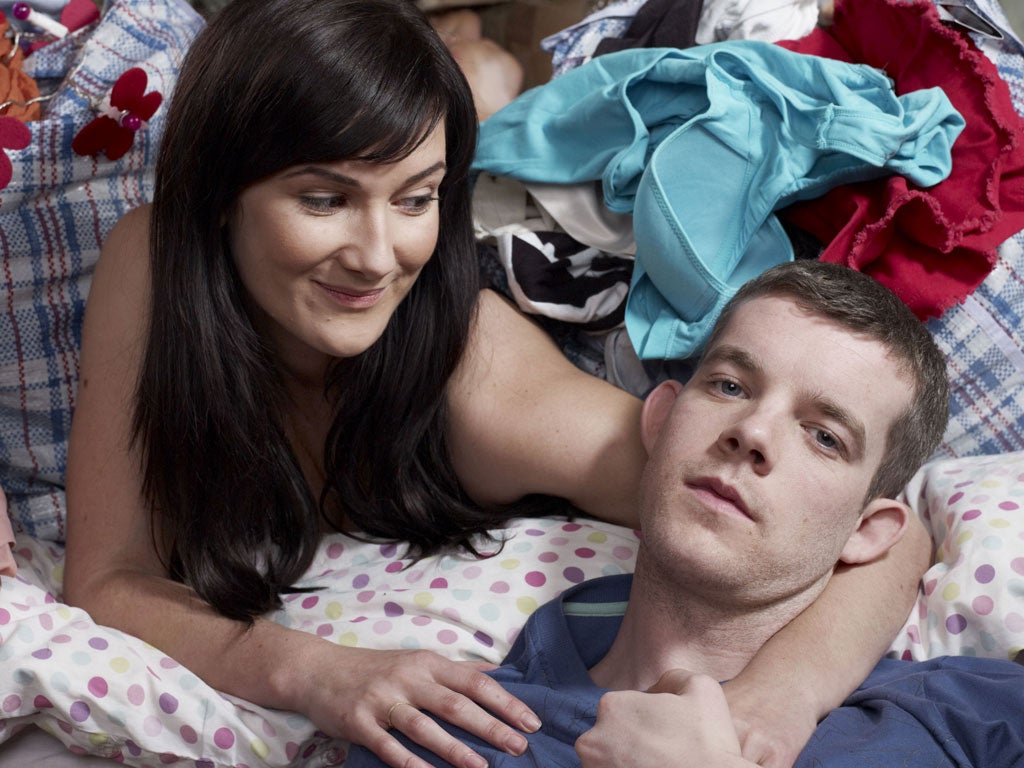March of The Mummies: Sarah Solemani warns childcare crisis is damaging couples’ relationships
‘It will affect your family planning. It will affect your career. It will affect your relationship,’ actor tells Maya Oppenheim


Your support helps us to tell the story
This election is still a dead heat, according to most polls. In a fight with such wafer-thin margins, we need reporters on the ground talking to the people Trump and Harris are courting. Your support allows us to keep sending journalists to the story.
The Independent is trusted by 27 million Americans from across the entire political spectrum every month. Unlike many other quality news outlets, we choose not to lock you out of our reporting and analysis with paywalls. But quality journalism must still be paid for.
Help us keep bring these critical stories to light. Your support makes all the difference.
What actor Sarah Solemani doesn’t know about childcare is not worth knowing.
Armed with facts, figures and pithy anecdotes about the UK’s childcare system, one of the most expensive in the world, Solemani annihilates the well-worn but sometimes well-deserved cliche that celebrities do not have a deep knowledge of the causes they lend their support to.
She is backing a Halloween-themed protest titled March of The Mummies, which will see an estimated 20,000 women march in cities up and down the country on Saturday to call for the government to urgently solve the childcare crisis and improve maternity and paternity provision.
Solemani argues the impact of extortionate childcare is far-reaching and that many wider societal problems would be solved if the UK had more affordable childcare.
“It will affect your family planning,” the 40-year-old, known for her role in the sitcom Him & Her, adds. “It will affect your career. It will affect your relationship. The divorce rate is so high within the first year of a first child being born because of the strain. And the vying for whose career is more important.”
The mother of two warns it is often the woman whose career takes more of “a hit” than the man’s after having children - with data showing childcare struggles are more likely to cause the woman to leave her job than the man.
But, she argues, childcare is an issue not sufficiently prioritised by politicians.
Asked whether the Conservative Party takes sufficient measures on childcare, she replies: “Their ideology is not gendered. They are so individualistic, that it just bypasses gender issues.”

But Solemani notes it can be difficult to galvanise excitement when discussing childcare and women’s issues in general.
“The reality is so much of the expectation on a woman’s life isn't glamorous and sexy to talk about. It doesn't grab headlines. No one wants to talk about domestic hours of keeping a house and childcare.”
While these elements of a woman’s life “can be incredibly fulfilling and rewarding, there is a lot of drudgery involved. And people don't want to engage in that,” she adds.
But in Solemani’s view, childcare is inexplicably linked to a healthy, functioning society. Making childcare more affordable would make the UK healthier and richer, she insists, noting early years are a vital indicator of later life.
“It is a financial economic issue,” the Camden-born actor says. “You will make more money, you will be more profitable, you will be healthier as a nation if you invest in early motherhood and early childcare health.
“You will save millions and millions. If you just leave it to rot, you will have to deal with these problems later on.
“I grew up in a foster home, my father was a foster carer. Ninety per cent of the children that we had in our home, they were put into care, some from abuse, but most because of neglect. And the neglect was because their mother was completely overworked.”

Solemani notes the “greatest indicator” of an individual’s health comes from their early childhood development – the first 1,000 days of their life specifically.
“So the roadmap of your success as a human being, which means the roadmap of your success as a society, depends on the emotional, psychological and financial health of the mother,” she explains. “And at the moment, we are setting women up to fail.”
Joeli Brearley, founder and chief executive of Pregnant Then Screwed, a prominent campaign group organising the protest, echoes Solemani’s views.
“It’s the 21st century, yet 54,000 mothers are being pushed out of the workforce every year for simply daring to procreate,” Brearley says.
“We have the second-most expensive childcare in the Organisation for Economic Cooperation and Development, the third-worst ranking maternity benefit and the worst-ranking paternity benefit in Europe.
You will save millions and millions. If you just leave it to rot, you will have to deal with these problems later on
“Data from the Office for National Statistics shows that women of childbearing age are dropping like flies from the workforce.
“The childcare sector is in a mess; thousands of nurseries have collapsed this year alone. We have had enough.”
Brearley explains the protest will be full of children in Halloween costumes, estimating 20,000 people could descend on cities across the UK.
Demonstrators will march in London, Manchester, Birmingham, Glasgow, Bristol, Leeds, Cardiff, Newcastle, Norwich, Exeter and Belfast, with Labour MP Stella Creasy and author Chimamanda Ngozi Adichie due to join the march.
Brearley notes there has been a massive change in how people treat childcare in the last two years. There is far more interest in the issue and politicians having conversations about childcare at the most senior level of government under former PMs Boris Johnson and Liz Truss.
But she warns there is still a great deal more to be done as she argues politicians get away with overlooking childcare as people do not properly understand its benefits.
“People still intrinsically believe when children are under five, women should be at home looking after the kids,” she adds.
“Part of the issue is people think it doesn’t affect them but investing in childcare is an investment in the economy and growth of the UK. If kids have been to high-quality childcare, it reduces the attainment gap between the richest and poorest children.”
She says the protest is ultimately calling for a high-quality affordable childcare system for all, as well as demanding investment in the childcare sector, so it costs no more than five per cent of household income.
It currently constitutes 30 per cent of household income in the UK, while in London it is even higher, Brearley notes.
On top of this, they are calling for default flexible working for all jobs, for childcare workers to be paid the same as primary school teachers, as well as ring-fenced and adequately paid maternity and paternity leave.
Recent research by Pregnant then Screwed found around three in 10 new parents will not be able to afford to have any more children, while almost half of pregnant mothers will have to shorten their maternity leave as a result of economic struggles.
The charity also found six in 10 women who have had an abortion say the cost of childcare in the UK put them off pregnancy, while almost one in five said childcare costs were the main reason they decided to terminate a pregnancy.
Studies have shown women bore the brunt of childcare responsibilities, household chores and homeschooling during lockdown, irrespective of whether they were working or not. The closure of schools and childcare providers compounded existing inequalities in how such duties are dished out among some couples.
A government spokesperson says it is “committed to supporting working parents and helping them participate and progress in their working life in a way that’s fair and suits them”.
It has allocated more than £20bn in the last half a decade to boost the “cost, choice, and availability of childcare,” the representative adds.
“But there are reasons to be hopeful,” Solemani reflects. “Just in one generation, we have seen a complete transformation in the role of fatherhood in families. In the previous generation, a man would not change a nappy or push a pram, and now fathers are engaging in a way that is completely different.
“And actually, they want to be more involved. They want to have better paternity rights. There is still huge stigma for men who take long paternity leave.”
Subscribe to Independent Premium to bookmark this article
Want to bookmark your favourite articles and stories to read or reference later? Start your Independent Premium subscription today.





Join our commenting forum
Join thought-provoking conversations, follow other Independent readers and see their replies
Comments